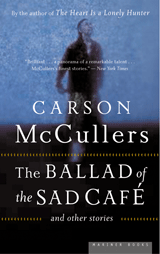so much time had been lost in the building of ratcliffe’s house, during which work the men had been forced to leave off the tilling of the garden to hew and build, that little corn had been planted, and as usual the indian was depended upon for supplies.
an unlooked-for obstacle presented itself. the cunning powhatan refused to barter corn for beads and trinkets. he was rising rapidly to the highwater mark in the art of finance. the unwise gifts of newport had opened his eyes to the possibilities of commerce. guns, swords, and hatchets were now the only recognized moneys for which a bushel of corn could be bought.
food must be had, but president smith had no mind to give into the indians’ hands the instruments of death. instead, he seized the corn at the muzzle of the gun, and when that failed, indian villages went up in flames. of course these summary proceedings widened the gap between indian and white man. constantly some man’s scalp went to add luster to the name of a brave.
smith not only procured food, but forced the colonists to work. a new fort was erected, new settlements established along the james, and the ground tilled as spring came on, and seed planted for the next year’s harvest.
meanwhile, the london company at home was listening to the lies of wingfield and ratcliffe. president smith, they claimed, was entirely to blame for the condition of the settlement; he had upset all law and order, and seized the presidency; his wanton cruelty to the savage was without excuse, besides, he had not found the south sea and raleigh’s lost colony—and there was no one to tell that the unconscious pocahontas held in her life the answer to their search.
the existing state of affairs must be altered, so the learned company appointed a governor to take the place of smith and rule with military law. a fleet of nine vessels, with men, women and children, should be sent as soon as possible with provisions, and all needful supplies. captain smith and his thirty true men were to be sent home. truly a munificent reward for brave effort and patient endurance!
meanwhile president smith, unconscious of coming disgrace, was away on a foraging136 expedition. on the return journey, being tired and worn out with toil, he lay down in the bottom of the boat and went to sleep.
a little spark, as tiny as a pea, floated from a pipe and settled on the powder pouch suspended from his belt.
dreamless slumber—a plunging and rising of the boat—liquid fire!
the unfortunate captain, screaming with pain, threw himself into the water. his horrified men could scarcely master his struggles as they pulled him aboard and rapidly rowed for home. no doctor skilled in burns was there to tend him; only the clumsy fingers of men applied the soothing oil and lint to his burnt body.
the news of his accident was carried by lurking indians to powhatan and came to the ears of pocahontas. her “father” hurt—wounded! the words beat upon her dazed brain like the strokes of a lash.
she must go to him. let powhatan kill if he would. speeding under cover of night, with soothing ointments known to her tribe, she came to jamestown.
“my father, my father! pocahontas wants her father.”
tenderly and gently mr. hunt led her to the bedside of john smith.
“has my little child come to see her father?” said the sick president. “he has missed his little one. she has not come to see him lately.”
“powhatan not let pocahontas come. she has herbs to make her father well.”
turning to mr. hunt she said, “you ask great spirit to make pocahontas’s father well, pocahontas give many gifts in return.”
“i have already done so, my child. the great spirit does not need to be bought with gifts. he loves your father more than even you do.”
but she shook her head in unbelief of this last assertion.
finding that his wounds were of too serious a nature for simple remedies, smith determined to return home on captain argall’s ship, now lying at her moorings in the harbor.
pocahontas was kneeling by his side when he told her of his coming departure. locking her hands together, she bowed her head upon them and abandoned herself to grief.
“do not grieve so, my child; your father will still love you. if i get well, doubtless i shall come back to you, or perhaps you may come across the sea to me. then i can138 show you all the wonderful things i have told you of. dry your tears, little one, they hurt me.”
passing her hands across her eyes, she brushed away the tears.
“pocahontas will do nothing to hurt her father. see, the smile has chased the tears away.”
when the day came for his departure a stretcher was prepared by his sorrowing friends and he was placed upon it.
“let pocahontas hold his head once more,” she pleaded, and the men let her have her desire. his friends took up the stretcher and the little procession moved toward the ship, pocahontas holding the head of the sick man in her arms. she followed them into the cabin and knelt in her accustomed place by his side. drawing her head down, he pressed a fatherly kiss upon her brow and bade her leave him.
standing on the beach she watched the receding ship as long as it could be seen, and again did eleanor dare’s soul bid good-by to a loved one. in her granddaughter’s heart love had taken the form of hero worship. the lovely jacqueminot bud was just beginning to unfold under the kisses of the sun, when fate snatched the burning rays away.
turning to her canoe, rocking idly on the water, she sprang in and sailed away, not to revisit jamestown again for three long years.
